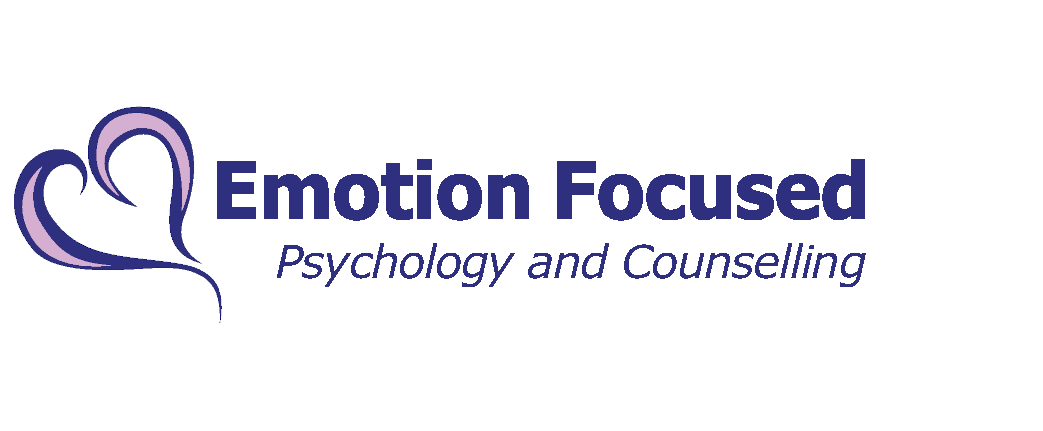
Seeing a Psychologist for Anxiety
Freud considered anxiety to be the “central problem” of neurosis, and since then many psychologists have adopted essentially the same view. As it increases in intensity, anxiety can be a very painful emotion. The main reason for anxiety is stress; the more stress we have in our life, the more anxious we get. We can imagine how anxiety works if we imagine our stress level a bucket of water: if we keep adding drops of water (stressors), over time it fills up until one day it overflows.
In psychology research, people experiencing anxiety are described as always being feverish, permanently analysing the situation and developing predictions on how well they will manage the situation. In spite of how insignificant a situation may seem, if it is about a meeting, a trip or an exam, an anxious person will amplify all the emotions associated with it and feel exhausted before the action even started. For example, if the husband is late, his wife may imagine and worry that he has had an accident or has an affair; even though her husband may simply be late because of the traffic.
When explained by a psychologist, anxiety is defined as a reaction to stress, a symptom; it may feel like fear, but they are not the same. In fear, we can identify what we are afraid of; by contrast, the person experiencing anxiety has feelings of dread and apprehension that do not make sense for the person experiencing them.
The anxious persons behave as though they are in great danger, to the point when they become terrified, yet no obvious external threat can be found matching the intensity of the reaction.
Psychologists at the Centre who can help with anxiety
Symptoms
Psychologists notice that anxiety can affect both your mind and your body, and it can be accompanied by a series of emotional and physical symptoms. Here are some of the most frequent:
Emotional Symptoms of Anxiety
- Difficulty in concentrating
- Feeling tense and jumpy
- Irritability
- Feeling of “mind went blank”
- Restlessness
Physical Symptoms of Anxiety
- Rising blood pressure, which causes a pounding heart
- Sweating
- Stomach upset or dizziness
- Tremors and twitches
- Increased muscular tension
- Fatigue and insomnia
- Headaches
- Shortness of breath
Psychologists agree that anxiety can make a person more fearful, irritable, and unable to relax. This can lead to a feeling of overwhelming desire to seek the reassurance of others, increasing the chances of dependency on others.
Other danger psychologists warn us about is the risk of dependencies: trying to cope with the stress and anxiety, a person may feel tempted to start smoking or drinking.
How Anxiety Affects Sufferers’ Lives
If anxiety crosses a certain level of intensity, it may become difficult for the person experiencing it to hold on to a job, to maintain good relationships or enjoy free time. Sleep problems may worsen and reduce the person’s ability to cope. Studies made in psychology conclude that there are many types of anxiety disorders including panic disorder, agoraphobia, specific phobia, social anxiety disorder, obsessive-compulsive disorder, post-traumatic stress disorder and generalised anxiety disorder.
People are different, and not all of us experience anxiety at the same level. Why some people are more anxious than others, is explained by a series of personal circumstances as personality traits, past experiences or social factors. Unsolved problems from the past, distressing situations, can have repercussions in the present, making the person anxious about facing similar situations again. A family with an anxious behaviour may induce to their child, feelings of anxiety and insecurity, determining him to respond the same way his family has. Some theories in psychology suggest that a person may inherit a tendency to be more anxious, becoming a part of his personality.
A person may also be anxious because of an overly demanding schedule, lack of exercise or sleep, pressure at home or work, or even from too much coffee.
What is there to do when all these worries and fears overcome us and interfere with our emotional and social life? Psychologists recommend facing up to anxiety and the way it makes you feel; this can be the first step in breaking the ice and consolidating feelings of security and confidence.
Treatments and Coping Mechanisms
Cognitive behavioural therapy is one type of therapy that can be effective in reducing the severity and occurrence of anxiety. Speaking very generally, this type of therapy involved helping a patient to recognise when they’re getting anxious and what’s making them feel that way, and then equipping them with tools to help them cope with those situations. Of course, each person’s experience of cognitive behavioural therapy (also known as CBT) will vary.
A very effective method in reducing the intensity of anxiety, recommended by psychologists is relaxation. The relaxation response is the body’s weapon against the stress response. While the stress response attacks your body, causing emotional and physical disorders, the relaxation response counters it. In health psychology, there are several techniques that help the mind and body to relax and find its balance:
- Deep breathing – A lung full of fresh air can provide the body with more oxygen and combat the shortness of breath associated with stress and anxiety;
- Muscle relaxation – It is a process of tensing and relaxing many different muscle groups in the body, reducing the negative symptoms a person may experience;
- Meditation – It can help fight negative emotions by clearing the mind and focusing on what is happening at the moment.
Doctors and psychologists both agree that a healthy lifestyle helps to cope with anxiety and feelings of tension, and may help to get more sleep at night. Physical exercises are considered vital for maintaining mental fitness, reducing stress, reducing fatigue, improving alertness and concentration, and enhancing overall cognitive function. Psychologists studying how exercise relieves anxiety and depression suggest that a 10-minute walk may be just as good as a 45-minute workout. The effects may be temporary, but a brisk walk or other simple activity can deliver several hours of relaxation and relief. A healthy diet, getting plenty of sleep, avoiding stimulants such as coffee, cigarettes and alcohol increases the body’s ability to cope with stress.
Talking to friends and family about what makes you anxious can also help; it is a great way to decrease the tension accumulated, just by having someone listening and empathising.
For more acute situations, when anxiety negatively influences family life, relationships or career, a more professional treatment is recommended. Visiting a counsellor or psychologist for anxiety will help the person begin to understand and deal with the causes of the problem.
A counsellor or psychologist can decide, based on the characteristics of each person, which type of counselling is appropriate and more effective: in groups or individually. Some types of counselling help with how you are feeling; others look into reasons why it appeared; others may do both. A professional counsellor will provide the tools to overcome anxiety and teach the person to use them.
Click on the photos to know more about the practitioners.
-
Carlos Schäfer Director & Principal Psychologist
Couples
Appointments Available
I’m a registered psychologist specialising in couples counselling, using emotion-focused therapy, experiential psychology and cognitive-emotive behavioural techniques. I’m passionate about creating a supportive space for partners to reconnect and explore new paths to emotional wellbeing.
For a full profile click on my image.
-
Lisa Schafer Registered Psychologist
Adults/Individuals
Appointments Available
I’m a registered psychologist with 20+ years of experience empowering individuals to believe in themselves, develop more confidence, and improve clarity and direction in their lives. I use holistic and strengths-based approach to help clients harness their unique strengths, recognise their sources of energy and build greater resilience and wellbeing.
For a full profile click on my image.


